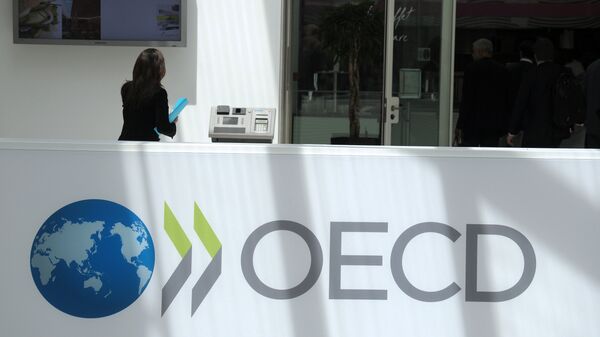"Global GDP growth is projected to slow marginally to 2.9% in 2016, lower than in 2015 remaining around the same 3% of recent years. For 2017, global GDP growth is expected to improve only modestly to 3.2%, all well-below historical norms… The world economy remains in a low-growth trap with persistent growth disappointments weighing on growth expectations and feeding back into weak trade, investment, productivity and wages," OECD said in its interim economic outlook.
The organization stressed that growth would remain subdued within the major economies. In particular, the euro area GDP growth slowed in the second quarter, driven by weak domestic demand and and stalling in investment, OECD recalled.
The forecast of the GDP of Germany, the eurozone's largest economy, increased by 0.2 percent and reached 1.8, and the next year is projected to reduce and reach 1.5 percent.
Monetary policy is overburdened and creating risky financial distortions, the organization said, adding that effective monetary policy requires more collective fiscal policy, as well as implementing structural reforms to boost growth and inclusiveness.
As for the emerging market economies, the growth there declined in 2016, but would pick up slowly next year, in particular, due to easing of the recessions.






